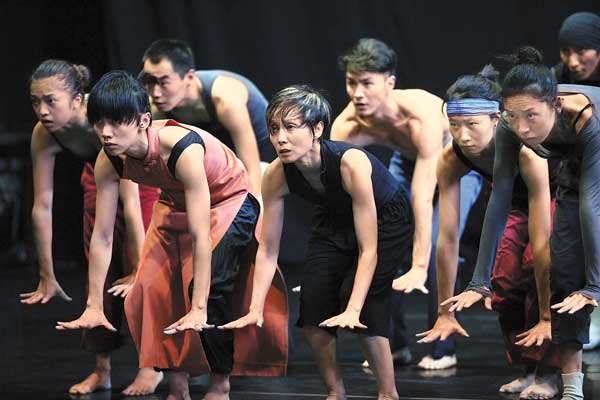Free on his feet
Don't force it
He says that he never forces anything.
"The only thing I told the dancers is that your body is free," Tsao says. "In the past, Chinese dancers limited their bodies because they were told that ‘Tibetan dance should be like this' and ‘Mongolian dance should be like that'. Modern dance gave them a feeling of liberty."
 |
|
Dancers of Beijing Dance LDTX rehearse the dance drama All River Red. Wang Jing / China Daily |
Tsao got a chance to bring his Hong Kong CCDC to Guangzhou in 1980. Dance had been considered a powerful publicity tool to educate the masses on the mainland then. There were only "red" ballets and folk dances.
So Tsao was ready for some bad feedback. However, when the show opened, he saw more than 1,000 people sitting on long wooden benches, twice the venue's capacity.
The night before they left, a young choreographer came to him and asked many questions about their show and how they danced in Hong Kong.
"He told me that all the spectators loved our shows very much but they had to leave early because they were afraid of being seen by the leaders," Tsao recalls. "I saw how curious they were about modern dance and how eager to know the art form."
That experience motivated Tsao to find — and create — modern-dance fans on the Chinese mainland.
Though during the past few years the art form is finding ways to experiment and grow, the focus for Tsao is still finding audiences in China that appreciate it like himself.
"Compared with those big-budget movies and TV shows, modern dance still belongs to a minority taste on the mainland," he says. "But that's OK. We have a stable amount of people who love modern dance and the number is growing steadily."
With modern dance, Tsao wants to express a sense of individualism. He doesn't want to use technology or big stars to attract audiences.
"It's easy to sell tickets. I could invite Lin Hwai-min or Jin Xing. But what's the point? What I want is those who vibrate with modern dance instinctively," he says.





















